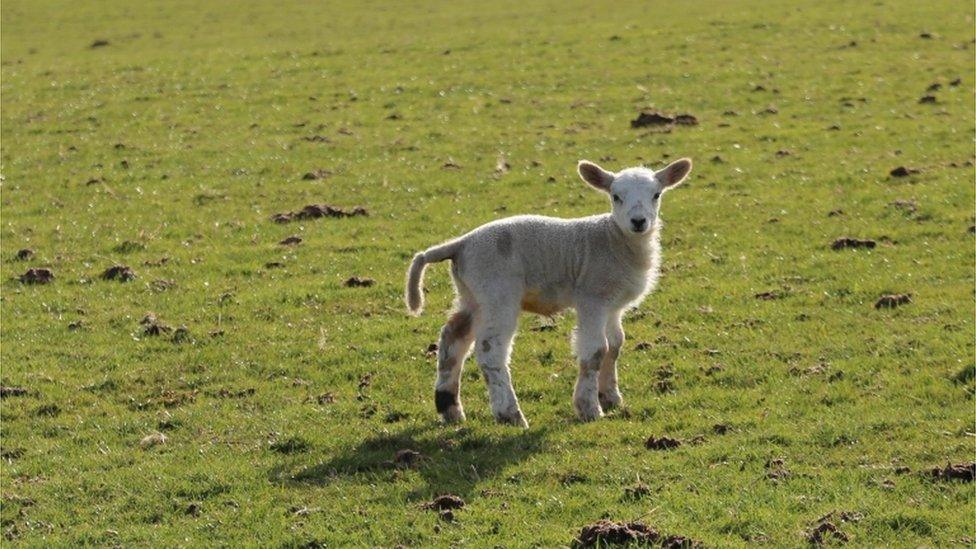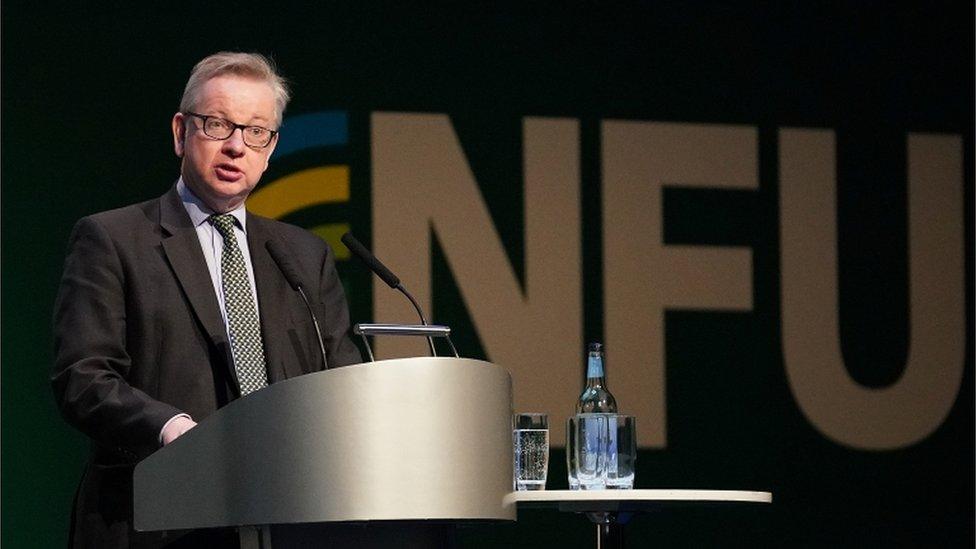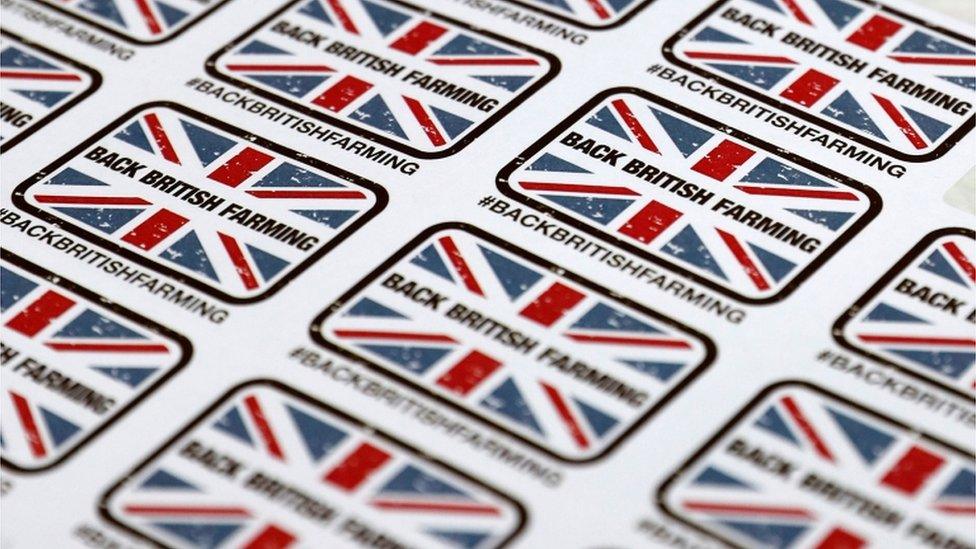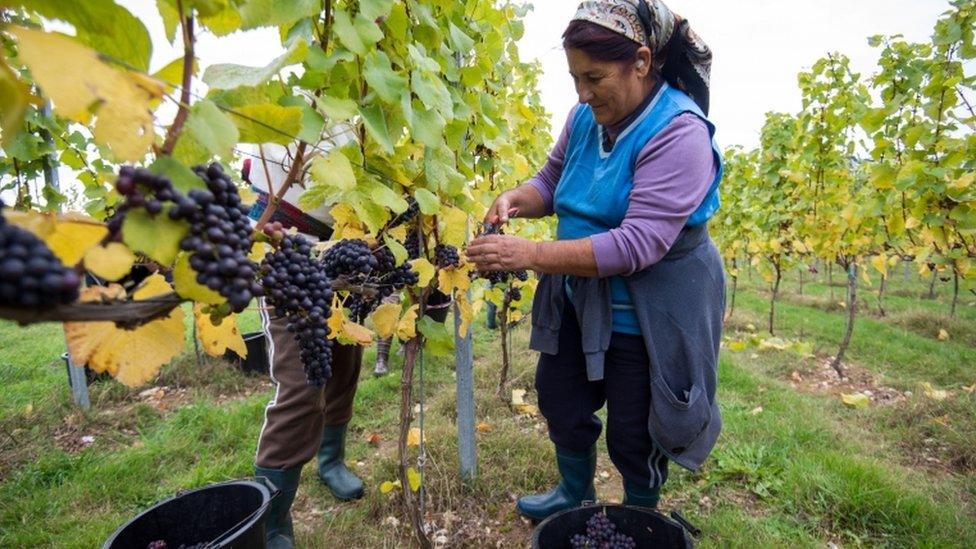The future of farming after we leave the European Union
- Published

When it comes to British lamb, French shoppers are prepared to pay. But will tariffs be pushed up post Brexit.
To mark a year until the UK officially leaves the EU I was asked by the team at BBC Farming Today to take a look at how preparations for Brexit are going when it comes to agriculture in England.
I thought you might like to read the slightly longer version of my contribution which you can also hear here.
"Wait and see," said Michael Gove when I asked him about his plans for migrant workers on the morning of his big speech to the NFU conference in Birmingham last month.
And so we did. And after the speech we're still waiting.

Michael Gove reveals more on his plans for post-Brexit agriculture to the National Farmers Union conference. Or did he?
And we're running out of time. As one veg grower explained to me, if we are introducing a visa scheme to bring in, say, strawberry pickers from Eastern and Central Europe, then by now you'd expect some sort of trial to make sure the technology and the paperwork is working. But instead...nothing.
A lack of clear plans, plus the lower pound, means existing overseas workers are already choosing to work elsewhere in Europe.
A year to go
But, with a year to go farmers are worried about a similar lack of progress elsewhere.
In global terms England's farmers produce high quality, but pricey, product.

These back British farmers stickers were seen during the National Farmers Union annual conference in Birmingham
When it comes to our lamb it's a price the French are prepared to pay. But what tariffs, if any, will this trade be subject to post Brexit? Could we see tariffs that push the price of our meat out of the range supermarché shoppers are prepared to pay? Farmers just don't know.
At the start of the year at the Oxford Farming Conference Mr Gove reaffirmed subsidies are safe till 2022 and he explained how the environment would be at the heart of the new subsidy system, with payments likely capped... for the biggest farmers.
And then six weeks later, farmers were grumbling, he made pretty much the same speech at the NFU conference in Birmingham.
For farmers the hope is an agricultural policy focused on a country rather than a continent could be much more nimble and responsive.

Farmers are still waiting to hear about the government's plan for migrant workers
And the good political news is that Michael Gove has power in the cabinet so agriculture is currently in the ascendant in Westminster. But despite this with a year to go on migrant workers, trade, subsidy details... we still don't know what Brexit will actually mean on our farms.